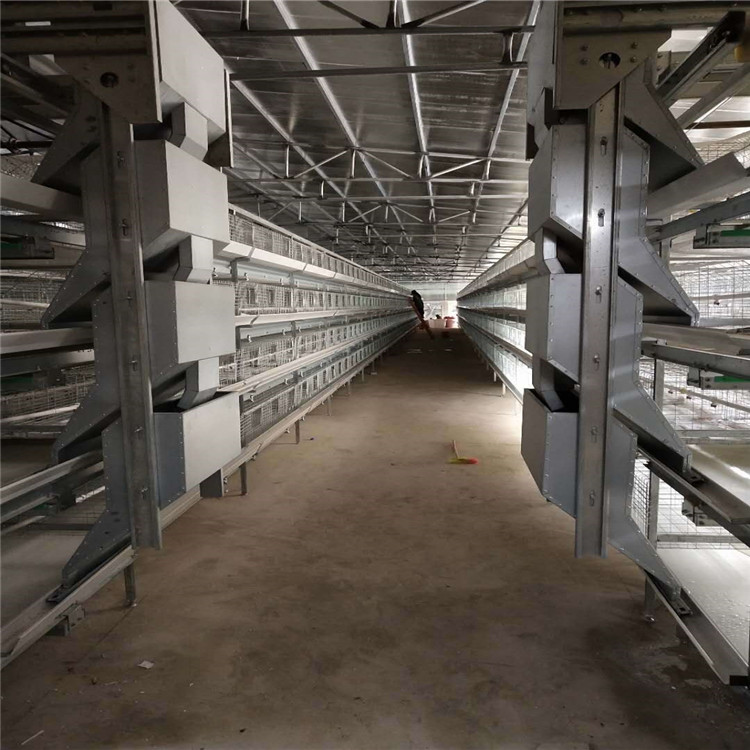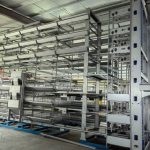In the experience of most farm managers, sufficient ventilation during the summer, along with the absence of cold stress, makes it less likely for poultry flocks to develop respiratory diseases. However, this year’s situation is different for two reasons: Firstly, there has been a continuous occurrence of mild avian influenza in laying hens. Secondly, the external weather conditions this year have been unstable, often leading to significant temperature variations between day and night, which has posed challenges for effective ventilation management.
Firstly, understanding the causes of respiratory diseases in poultry is crucial:
Stress is the root of all illnesses. All diseases begin with a decrease in the chicken’s resistance due to stress. Therefore, stress management should be a key focus in daily husbandry practices. Immune stress, flock movement stress, weather stress, and physiological stress are all inevitable factors. For the summer season, it’s crucial to effectively manage heat stress and prevent intestinal disorders.
The unique physiological structure of chickens makes them prone to respiratory diseases. Bacteria, viruses, mycoplasmas, and ventilation issues can all lead to respiratory infections. Poultry farmers need to analyze these factors and take targeted measures accordingly. Developing specific control plans and taking preventive measures in advance can significantly reduce the likelihood of respiratory diseases.
Improper ventilation management is a significant factor leading to respiratory issues that farmers need to focus on. During the summer, farm managers prioritize heat stress prevention and cooling efforts, often neglecting the potential respiratory issues caused by high wind speeds and improper usage of wet curtains, which can create temperature differences that affect the birds’ respiratory systems. Especially in certain hilly areas where daytime temperatures exceed 34 degrees Celsius, dropping to around 20 degrees at night, effective ventilation management becomes more intricate due to rapid environmental changes. Preventing excessive wind speeds from affecting the birds and causing cold stress-induced respiratory problems requires precise adjustments.

Once the causes are identified, what actions should poultry farmers take?
Density management: To ensure comfortable ventilation for each bird, a scientifically reasonable stocking density is essential, enabling free and unrestricted breathing. Overcrowding can lead to insufficient feeding, drinking, and movement space, affecting overall flock development and resilience, and increasing the likelihood of diseases. Recommended stocking density standards are as follows:
| Age | 1-4 days | 4-12 days | 13-98 days | 98 days-laying chicken |
| Density | 0.0167㎡/per chick | 0.0334㎡/per chick | 0.0503㎡/per chick | 0.045㎡/per chick |
Barn hygiene: Maintaining barn cleanliness, especially ensuring regular removal of manure to minimize harmful gas production, creates a fresh indoor environment for the birds. Regular cleaning of the barn environment, especially hard-to-reach corners and areas in direct contact with the birds, reduces contact between the birds and pathogenic microorganisms.
Biosecurity management: Isolating the entire farm from the external environment helps reduce the introduction of other pathogens. Regular disinfection of the brooder cage for sale reduces the presence of pathogenic microorganisms in the environment.
Ventilation management in brooder cage for sale: Ventilation plays a crucial role in preventing and controlling respiratory diseases. Developing appropriate ventilation plans based on different age groups and seasons is vital. During the brooding period (0-6 weeks), maintaining proper temperature and humidity levels and adequate ventilation to meet the minimum respiratory requirements of the chicks is paramount. In the growing period (7-18 weeks), since the chickens have developed temperature regulation and adaptability, the focus shifts to maintaining air quality. During the laying period, ventilation standards should adapt to seasonal changes and ensure stable, suitable, and uniform ventilation practices.
Nutritional management: Providing appropriate and sufficient nutrition is a significant factor in maintaining the birds’ resistance. Using high-quality feed and avoiding moldy ingredients are crucial, and mold inhibitors should be added to the feed when necessary.
Immunization management: For controlling viral respiratory diseases, immunization is paramount. This is especially crucial for immunizing against Newcastle disease, mild avian influenza, and infectious bronchitis. Ensuring uniformly effective antibodies within the flock is the ultimate goal in controlling viral respiratory diseases.
Respiratory diseases are common challenges in laying hen production. As farm managers, it’s essential to regularly conduct nighttime observations (“listening to the birds”), promptly identify issues, and take measures to ensure the flock’s health to the greatest extent possible.



